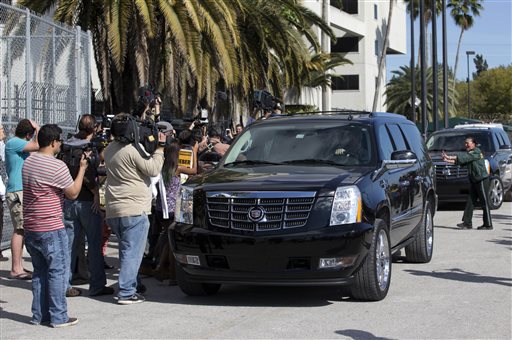With celebrity photos plastering the covers of magazines, the headlines on the news, and every social media feed you can think of, it is glaringly apparent that society has more than its fair share of celebrity obsession. This is no new revelation, as celebrities have been reviled among less notable people for eons, but with the advent of new technologies, fans are more connected – and obsessed – than ever before. Some can’t help but be worried by this new trend, especially in light of incidents which should have left fans disappointed in their idols, but instead only intensified their devotion.
The most recent of these occurrences is, of course, the case of Justin Bieber. “The Biebs” has amassed a lengthy list of poor publicity, including (but not limited to) a supposed run-in with a Brazilian prostitute, egging a neighbor’s house, attacking photographers, having his pet monkey confiscated in Germany, leaving selfish comments at the Anne Frank House in Amsterdam, and, most recently, serving jail time for street racing and a DUI. With such a loaded repertoire of misconduct, one would hope and even assume that Bieber’s fans would react appropriately, urging their idol to give up his wild ways if not reconsidering their support of him entirely. Of course, there is always a minority of diehard fans who would try to justify their favorite celebrity’s actions to the bitter end, but typically this is the exception, not the rule.
In light of Justin Bieber’s recent behavior, however, fans seem to be doing just the opposite. While Bieber has received a virtual firestorm of criticism from long-time opposers, it seems that the overwhelming trend among his fan base is to make any claims necessary to justify their icon’s recent brash behavior. “Beliebers” offer a range of arguments against Bieber’s criticism – usually in 140 characters or less – including claims that he was wrongfully accused and accusations that his critics are “bullying him.”
The changing landscape of communication may have something to do with the situation at hand with Justin Bieber, one that is surprisingly not unique: in recent years, celebrities from Chris Brown to Charlie Sheen have experienced the same phenomenon. Gone are the days of skimming the headlines of the gossip magazines in line at the grocery store and quietly keeping opinions to yourself or perhaps among a few friends. With social media at the fingertips of fans everywhere, the temptation to broadcast opinions on every tabloid event causes a wildfire spread of information, only some of which is accurate, and a constant stream of reactions regarding any given happening.
To add to the situation, social media provides an avenue for fans to stay constantly plugged into their celebrity obsession. Supporters often make Twitter, Tumblr, and Instagram accounts solely devoted to their celebrity or “fandom” of choice. This creates a kind of virtual immersion in an online haven exclusively for superfans of a particular celebrity – a place where any criticism of said figure is nothing short of heresy and would expose the critic as not being a “true fan.”
There is nothing wrong with this setup in theory: practically everyone has a celebrity or two that they adore unconditionally, and it can be fun to connect with other people who feel the same way. But putting hoards of ultra-devoted fans into a virtual bubble where they can feed off each other’s enthusiasm can quickly spiral out of control. Returning to the case of Justin Bieber, one might remember the star’s controversial run-in with marijuana in January of 2013. The event so thoroughly upset Bieber’s fans that the gruesome “#cutforbieber” campaign, which started off as twisted satire but quickly snowballed into a real problem, began encouraging enraged fans to physically harm themselves until their idol agreed to quit using the drug. The surprising number of diehard fans posting grisly pictures of the results of their self-harm on Twitter and Instagram was disturbing to say the least, and it goes to show how celebrity sensationalism can produce a genuinely harmful impact.
An incident as serious as this one is unheard of among the fans of previous superstars. It seems that the new communication of the digital era has only added gasoline to the flames of fan obsession, a development which could very well be a double-edged sword. Celebrities are a deeply-entrenched part of our culture and one that likely won’t be going away anytime soon, so fans will have to wield their newfound modes of connection carefully to avoid the potent extremes of their own devotion. Meanwhile, the rest of America will have to cross their fingers that the big names of superstardom like Justin Bieber can manage to stay out of trouble long enough to appease their vocal fans – either that, or become a bit better acquainted with the “Unfollow” button.


